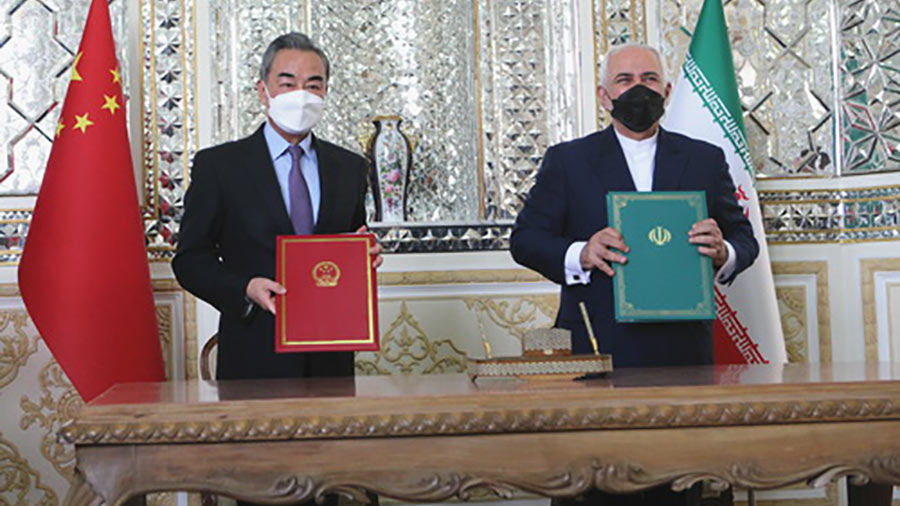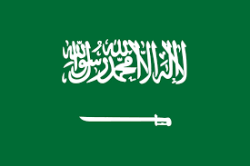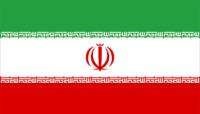China Foreign Minister Wang Yi’s Visit to the Middle East

China’s Wang Yi with Iran’s Mohammad Javad Zarif and the US$400 billion cooperation agreement
Op/Ed by Chris Devonshire-Ellis
- Full reports and analysis from Wang’s visits to Saudi Arabia, Turkey, Iran, United Arab Emirates, Bahrain and Oman
- US$400 billion Cooperation Agreement signed with Iran
The hyper level of global diplomatic activity shown by China this year shows no signs of slowing down. Wang Yi, China’s Foreign Minister, has visited six Middle East nations this past week, following earlier missions to Africa and ASEAN. In this article we examine where he went and provide overviews of what was discussed. Text from the meetings is sourced from official accounts and can be a little stodgy; the analysis is our own.
Saudi Arabia

On March 24, China’s State Councilor and Foreign Minister Wang Yi held talks with Saudi Arabian Foreign Minister Faisal bin Farhan Al Saud in Riyadh.
Wang commented that China and Saudi Arabia share a comprehensive strategic partnership. Under the guidance of the two heads of state, the development of the bilateral relations has maintained a sound momentum. In the face of changes unseen in a century and new situation in the Middle East, the strategic importance of the China-Saudi Arabia relations has become more prominent, and the two sides need to conduct timely strategic communication, safeguard the common interests, and contribute to global peace, stability, and development.
China supports Saudi Arabia in choosing a development path that fits its national situation, (Saudi Vision 2030) while playing a larger role in regional and global affairs, while opposing interference in Saudi Arabia’s internal affairs under the pretext of ideology and values. China appreciates Saudi Arabia’s understanding and consistent support for China on the issues related to China’s core interests, including Xinjiang, Hong Kong and Taiwan, and other issues of China’s major concerns. The sanctions imposed by a few Western countries on China over the Xinjiang-related issues based on elaborately fabrications are an interference in China’s internal affairs which aims to suppress and contain China. Such act is a throwback to the era of “law of the jungle” in which right and wrong are not distinguished, which should be jointly rejected by all other countries. Supporting China means the support for the purposes and principles of the UN Charter as well as international fairness and justice. Through safeguarding their sovereignty, national dignity and development rights, China and Saudi Arabia will further boost their strategic trust and pave the way for broader cooperation in all fields.
Wang said that China stands ready to deepen the synergy between China’s Belt and Road Initiative and Saudi Arabia’s Vision 2030; and make good use of the mechanism of the China-Saudi Arabia High-Level Joint Committee to promote cooperation in traditional areas such as trade, investment, and major projects, as well as in the emerging fields including 5G, artificial intelligence and big data. China is willing to help Saudi Arabia in its efforts to diversify its economy and achieve sustainable development. Both countries should work together to make good preparations for the upcoming China-Arab Summit and formulate a roadmap and specific plans for building a China-Arab community with a shared future.
Wang stressed that China is happy to see Saudi Arabia, as a major regional power, playing an important role in promoting regional peace and stability, and supports Saudi Arabia’s initiative on resolving the Yemen crisis. Considering changes in the Middle East, China has proposed a five-point initiative for achieving security and stability in the region, which is an active response to the requests of the countries in the region and based on the respect for their wills. China is ready to work with Saudi Arabia and other Arab countries to carry forward a China-Arab data security cooperation initiative to make the digital economy more secure, standardized, open, and mutually beneficial. Noting that China and the Gulf Cooperation Council have been negotiating on a free trade deal for years, Wang Yi said he hopes that the two sides can reach an agreement at an early date.
Faisal said that the Saudi Arabia-China relations have a long history and grown stronger as time goes by. Saudi Arabia is proud of its friendly relations with China and will make every effort to push forward the relationship for the benefit of the two peoples. The Saudi side believes that all countries have the right to choose their own development path and should devote themselves to serving their own people instead of following the instructions of others. No country is superior to any other country and no country has the right to tell others what to do. The principle of non-interference in other countries’ internal affairs is a clear principle in international law. Saudi Arabia opposes any form of interference in China’s internal affairs and is willing to strengthen cooperation with China to jointly safeguard international order and stability. The Saudi side is willing to increase high-level exchanges, enhance strategic communication, and convene the meeting of the China-Saudi Arabia High-Level Joint Committee as soon as possible to expand bilateral cooperation in all fields. The two countries should work together to make good preparations for the China-Arab Summit to ensure that it will achieve important results. Saudi Arabia welcomes China to play an active role in safeguarding the security in the Middle East, while appreciating China’s initiative in the above areas. Saudi Arabia is willing to make joint efforts with China to push forward negotiations on a free trade deal between China and Gulf countries.
The two sides also exchanged in-depth views on the Iranian nuclear issue, Yemen, and other international and regional issues of common concern.
Analysis
Saudi Arabia’s unwillingness to criticize China concerning the situation in Xinjiang is telling as the country is predominantly Sunni Muslim as are the Uyghurs. That underlines the greater understanding of the Muslim world and its stresses as understood by Saudi Arabia perhaps to a better level than in the largely non-Muslim West.
In terms of trade, both sides referred to a proposed China-Gulf Cooperation Council Free Trade Agreement, with the Gulf Cooperation Council including Bahrain, Kuwait, Oman, Qatar, Saudi Arabia, and the United Arab Emirates. That would be energy focused but would also encourage financial investment with China’s ally Pakistan also keen to attract investment from the region. It is also possible that Saudi Arabia could in the longer term be a candidate for joining the China lead Shanghai Cooperation Organisation in some capacity, possibly as a dialogue partner, a move that would bring the country further into China’s increasing Middle East orbit and influence.
Turkey

On March 25, Wang Yi met with Turkish President Recep Tayyip Erdogan in Ankara.
Erdogan asked Wang to convey his sincere greetings and best wishes to President Xi Jinping and warmly congratulated the Communist Party of China (CPC) on the 100th anniversary of its founding. Erdogan said the Justice and Development Party of Turkey looks forward to enhancing its communication with the CPC, to make contributions to the cooperation among the political parties around the world. This year marks the 50th anniversary of the establishment of diplomatic ties between Turkey and China. Turkey attaches great importance to developing its relations with China, firmly opposes any form of terrorism, and hopes to build closer ties and exchanges with China for further developing bilateral relations.
Erdogan said that he had been inoculated with China’s COVID-19 vaccine, aiming to show the safety and effectiveness of the Chinese vaccines to Turkish citizens as well as the whole world. Turkey is willing to deepen its vaccine cooperation with China and explore the potential of conducting such cooperation with a third party. Turkey looks forward to increasing Turkey-China high-level exchanges, boosting mutual trust, making good use of the existing cooperative mechanisms, promoting the synergy between its Middle Corridor project and the Belt and Road Initiative, enhancing cooperation in the fields including connectivity, infrastructure construction and investment, seeking more balanced development of bilateral trade, and encouraging local currency settlement. Turkey attaches great importance to China’s five-point initiative for achieving the security and stability in the Middle East and is willing to deepen communication and coordination with China on regional affairs.
Wang conveyed cordial greetings from President Xi Jinping to Erdogan. Wang Yi said that China, under the CPC leadership, has found a development path that fits its national conditions and is now embarking on the new journey to fully building a modern socialist country. China is willing to deepen friendly cooperation with Turkey and strengthen exchanges of experience in state governance.
Wang said that taking the opportunity of the 50th anniversary of the establishment of diplomatic relations between the two nations, China is ready to work with Turkey to implement the important consensus reached by the two heads of state, build on past achievements and forge ahead to promote the healthy and stable development of China-Turkey strategic cooperative relations, to bring more benefits to the two peoples.
Wang stressed that both sides need to continue to understand and support each other on the issues related to core interests, and insist on not interfering in each other’s domestic affairs, to effectively safeguard the political foundation of China-Turkey relations. China is ready to continue to provide help for Turkey in its fight against the COVID-19 pandemic, and fully release the positive energy of the vaccine cooperation between the two nations. The two countries should further promote the synergy between the Belt and Road Initiative and the Middle Corridor project, strengthen cooperation in the high-tech sectors including 5G, artificial intelligence, big data, and digital economy, and make solid progress in major projects to seek win-win results. China will encourage more Chinese enterprises to import quality products from Turkey and increase the investment in Turkey. As two important emerging economies, China and Turkey should solidify their unity and cooperate on deepening party communications, safeguarding the development rights of each other, and protecting the common interests of the developing countries. On the same day, Wang Yi also met with Turkish Foreign Minister Mevlut Cavusoglu.
Analysis:
Wang’s Turkish trip was rather more business related, with Turkey also under pressure from the United States and the much-vaunted EU membership deal having effectively turned to dust. Turkey is a major strategic power with trade access to Europe, Persia and Russia. That gives it gives it a primary position within the framework of the Belt and Road Initiative (BRI), which has brought a new dynamism to Turkish-Chinese relations.
Ankara recognized the BRI potential early on, proposed itself in 2015 as the starting point for a “Middle Corridor” in the BRI — stretching through the Caucasus and Central Asia — and a memorandum of understanding was signed. In line with this agreement, Turkey completed the Baku-Tbilisi-Kars railway project in 2017 and the first export train to China via this route left Istanbul at the end of last year, reaching China’s Xi’an two weeks later. Ankara’s approach to Beijing is based on pragmatism and rationalism that is predominately motivated by economic concerns, rather than any ideological choice. The trade volume between China and Turkey is about US$24 billion as of 2020, as Beijing became Ankara’s second-largest trading partner. There is plenty of room for that trade dynamic to develop still further.
Iran

On March 27, China’s Wang Yi held talks with Iranian Foreign Minister Mohammad Javad Zarif in Tehran. Wang noted, since the establishment of diplomatic ties 50 years ago, China and Iran have maintained close communication and exchanges, shown mutual understanding and support, and continuously deepened the political mutual trust. Under the new situation, the two countries should continue mutual support on the issues related to each other’s core interests and major concerns, to safeguard their legitimate rights and interests, the basic norms governing international relations, the common interests of developing countries including China and Iran, as well as equality and justice in the international community.
Wang said that China stands ready to strengthen cooperation with Iran in combating COVID-19 and protecting public health, to push forward the construction of a global community of health for all. The China-Iran cooperation within the framework of the Belt and Road Initiative should be stepped up to promote further development of the bilateral relations. The two countries should take the 50th anniversary of their diplomatic ties as an opportunity to actively carry out cultural and people-to-people exchanges and enhance the friendship between the two peoples. China welcomes Iran to send a delegation to the 2022 Beijing Winter Olympic Games.
Wang said that the two countries agreed to conclude a comprehensive cooperation plan, according to a joint statement on establishing a comprehensive strategic partnership in January 2016. Through concerted efforts of both countries, we will sign the China-Iran comprehensive cooperation plan today to tap the potential for cooperation in areas such as economy and culture and map out prospects for cooperation in the long run. Wang stated that this will further promote the continuous upgrading of the China-Iran comprehensive strategic partnership and better benefit the two peoples.
Mohammad Javad Zarif said, the exchanges between Iran and China could be dated back to long ago. Iran attaches great importance to its relations with China and strengthening cooperation with China is a strategic choice made by Iran. Iran congratulated China on successfully containing the COVID-19 pandemic and making great achievement in protecting the safety of its people, appreciated China’s help to Iran’s fight against the virus, and hoped to further the anti-epidemic cooperation with China. The signing of the comprehensive cooperation plan will inject new impetus into further strengthening mutually beneficial cooperation. Iran thanked China’s firm support for Iran’s opposition to unilateral sanctions imposed by the United States, while vowing to stand with China and oppose Western pressures on China. Iran looks forward to participating in the 2022 Beijing Winter Olympic Games and will resist any attempt by the West to boycott the Games.
Both sides also exchanged in-depth views on the Iranian nuclear issue. Mohammad Javad Zarif said, the United States, instead of making unreasonable demands on Iran, should take the first step, lift unilateral sanctions against Iran, and return to the Joint Comprehensive Plan of Action (JCPOA). Iran is willing to work closely with China, a reliable partner on this matter, and jointly push the JCPOA back on track. Wang stated that the current situation of the Iranian nuclear issue has been caused by the unilateral withdrawal from the deal by the United States, the United States should lift its illegitimate sanctions against Iran, cancel its measures of long-arm jurisdiction over third parties, and resume the implementation of the JCPOA unconditionally. The relevant parties may lay the ground for restoring the JCPOA through formulating a roadmap with synchronization and reciprocity, and seeking early results, in which regard China is willing to continue to play a constructive role.
The two sides also exchanged views on international and regional issues of common concern and attended the exhibition of historical documents on the China-Iran friendly exchanges. After the meeting, the two ministers signed the document on the plan for China-Iran comprehensive cooperation.
Analysis
An increasing theme among Chinese diplomatic comments are a more assertive criticism of US policy and this was certainly the case from China in criticizing the US withdrawal from the JCPOA nuclear deal, which also took the EU by surprise. That deal, which Trump destroyed has yet to be put back on the agenda by the Biden administration, appears to be remaining off the table as the US has decided against lifting any Iranian sanctions at this time. That leaves both China and Russia has the remaining influential powers in Tehran.
The China-Iran Comprehensive Cooperation Agreement deal, taps the potential in economic and cultural cooperation and makes plans for long-term cooperation, including the continuous upgrading of the China-Iran comprehensive strategic partnership. China has pledged to spend US$400 billion over the next 25 years, in which Iran has agreed to a continuous supply of Oil and China to invest in Iranian and regional infrastructure and trade.
That is likely to include Chinese investment in at least part of the International North South Transport Corridor, an India-Iran-Russia initiative that has created a multi-modal transport corridor between Mumbai and Moscow. That is being mooted as a back-up to the Suez Canal and has additional rail links through to connecting lines to Turkey and Europe, through to the Caucasus and east through to western Afghanistan. Eventually that could link to the proposed Trans-Afghan Railway which in turn connects with Uzbekistan and to Pakistan’s Gwadar Port. This development of rail access into the heartland of Central Asia is doubly important to China, firstly as it opens hard to reach markets, and because by developing regional trade into Central Asia and especially Afghanistan and Pakistan – both of which border China – radical Islam can be dispersed leading to less risk of problems in China’s Xinjiang Province.
United Arab Emirates

On March 28, China’s Foreign Minister Wang Yi held talks with Foreign Minister of the United Arab Emirates (UAE) Sheikh Abdullah bin Zayed Al Nahyan in Abu Dhabi.
Wang said that the relations between China and the UAE are based on a high mutual trust and deep-rooted traditional friendship. The strong friendship and mutual trust between the top leaders of the two countries provide a solid guarantee for the continuous development of China-UAE relations. China supports the UAE in safeguarding its national security and stability, independently exploring a development path in line with its own national conditions, combating religious extremism, and playing a positive role in international and regional affairs. China appreciates the UAE’s strong support on the issues concerning China’s core interests. The development of China, the UAE and other emerging economies represents the growing forces of peace and the diversity of civilizations, which will make the world more balanced, harmonious and diversified.
Wang emphasized that the phase-3 trial of the COVID-19 vaccine, jointly carried out by China and the UAE, has set a record for multi-nationality and large-scale clinical trials, and made important contribution to promoting international anti-coronavirus cooperation. China is willing to continuously develop new models and expand the scope of cooperation with the UAE, to showcase the principles of international morality upheld by the two countries. China is willing to work with the UAE to enhance connectivity of the Belt and Road Initiative and the UAE’s 50-year National Development Plan, expand mutually beneficial cooperation in such fields as energy, high and new technologies, finance and investment, and jointly promote international mutual recognition of health codes. The two sides also need to strengthen cooperation in counter-terrorism and de-radicalization. China will offer full support for the UAE to host the World Expo in Dubai and will work with all parties to ensure the success of the 2022 Beijing Winter Olympic Games.
Wang Yi said that China is willing to strengthen communication and coordination with the UAE in multilateral institutions such as the United Nations, jointly safeguard true multilateralism, promote democracy in international relations, support diversity of civilizations, give play to the central role of the United Nations, and defend the authority of international law and international treaties. China and Arab states have reached an agreement on jointly proposing a data security cooperation initiative, indicating that both sides are willing to actively participate in formulating the rules of the global digital economy. China has put forward a five-point initiative on achieving security and stability in the Middle East, and hopes that regional countries will uphold the spirit of independence and take ownership of the region to explore a security framework that meets regional needs, and find a development path that suits their national conditions.
Sheikh Abdullah bin Zayed Al Nahyan said that the UAE is proud of having such a strategic partner as China. The UAE supports the one-China principle, China’s endeavors to safeguard the diversity of world civilizations, and China’s leading role in promoting global common development. The UAE hopes to deepen its cooperation with China in the fields such as health, agriculture, science and technology, tackling climate change, and preventing desertification to achieve mutually beneficial results. The UAE is willing to work together with China to combat terrorism, and in particular, to make more efforts in the field of de-radicalization, so as to safeguard peace and stability in the Middle East. He hopes that the two sides will further coordinate and cooperate in the UN affairs. The UAE appreciates China’s active participation in the World Expo in Dubai and supports China in hosting the Beijing Winter Olympics.
The two sides also exchanged in-depth views on international and regional issues of common concern.
The two sides announced that an agreement has been reached in principle on the mutual recognition of health codes. After the talks, both sides took part in an online ceremony to launch a joint vaccine liquid bottling production line.
Analysis
Unlike it’s neighbours, the UAE is not a major energy play but is does have a strong financial services and medical industry. This was highlghted during the trip with both sides having worked on co-production of Covid vaccines. China has also been targetting Arabic Muslim nations for support concerning next years Olympics, illustrating that Beijing is expecting increasing threats of boycotts and pullouts by the West under the guise of accusations of ‘genocide‘ in Xinjiang. As China Uyghurs are Sunni Muslims like those in Saudi Arabia and the UAE, acceptance of the Xinjiang situation in these countries goes a long way to supporting the Chinese position and weakens arguments against China in the non-Muslim West. Discussions concerning the UAE’s role as an Arabic financial hub and the channeling of finances through Dubai and Hong Kong will also have been discussed.
Oman

China and Oman pledged on Monday to step up communication and cooperation and make joint efforts to help the Middle East achieve peace and stability. The commitment was made at a meeting between visiting Chinese Foreign Minister Wang Yi and Omani Deputy Prime Minister for the Council of Ministers Sayyid Fahd bin Mahmoud Al Said in Muscat, the capital of the Sultanate.
Noting that China and Oman are both peace-loving countries boasting long histories, Wang said the ancient “Maritime Silk Road” that once linked the two peoples was the starting point for both the friendly exchanges between the two countries and the traditional friendly bond between China and the Arab world.
Lauding the China-Oman relationship as a paradigm of the equal, mutually beneficial and win-win relationship between a major country and a small one, the Chinese diplomat said that China and Oman have continuously deepened their strategic partnership through enhancing political mutual trust and firmly supporting each other on the issues related to each other’s core interests.
Wang noted that, during his current visit, the two sides agreed to deepen the synergy between the China-proposed Belt and Road Initiative and Oman’s “2040 Vision” and expand bilateral cooperation for the benefits of the two peoples.
Both China and Oman actively advocate democratizing international relations, upholding multilateralism, and safeguarding the international system with the United Nations as the core and the international order based on international law, Wang added.
He said the two countries agreed to make joint efforts to pass on and carry forward their traditional friendship and strive to achieve greater development of their strategic partnership in the new era.
China never seeks its own gains or sphere of influence in the Middle East, nor will it participate in geographical competition in the region, said the Chinese minister, stressing that his country stands ready to promote the South-South cooperation with the Mideast countries, defend the common interests, and achieve common development.
Wang voiced China’s support for the Mideast countries, to peacefully solve their hot-spot issues and problems left over from history through dialogue and consultation, adding confidence that the regional countries can work together to build a more peaceful, stable and prosperous Middle East as long as they can understand, tolerate and trust each other.
The Chinese diplomat also praised Oman’s moderate and pragmatic foreign policy, citing the Arab country’s efforts to make extensive contacts with other countries in the region and its unique role in maintaining regional peace and stability. China will continue to be a reliable and long-term cooperation partner for Oman and other Mideast countries, Wang said.
For his part, Fahd said China plays a key role in both regional and international arenas and makes significant contribution to the peaceful development in the region and across the globe.
Noting that Oman cherishes its friendship with China, Fahd said his country is willing to vigorously expand cooperation with China and promote further development of the bilateral ties. In view of the many conflicts and disputes in the Middle East, the regional countries should seek unity in weal and woe, said the Omani official.
He also praised China’s consistent adherence to the principle of mutual trust and mutual benefit in its foreign policy, expressing the hope that China will further exert its influence and make greater contribution to the bright future of the Middle East and the world as well.
Oman is willing to strengthen communication and coordination with China and make unremitting efforts to achieve regional peace and stability, said Fahd.
Analysis
It is interesting to note how China’s Belt & Road Initiative is being aligned with other national develoment programmes, such as the Saudi Vision 2030, the UAE’s 50 year development plan and the Omani national development policy. The Belt & Road Initiative is integrating with other longer term national development plans.
In terms of Oman, China stated it wished to boost bilateral cooperation in trade, investment, 5G, and information technology, in a bid to assist Oman with its strategy to achieve greater economic diversification, and thanked Oman for providing facilities for the regional Chinese naval escort fleet.
Bahrain

Chinese Foreign Minister Wang Yi met Bahrain’s King Hamad bin Isa Al Khalifa in Bahrain’s capital Manama yesterday (March 29). “We cherish the positive progress that China-Bahrain relations have made over the years,” Wang said, adding that China has always advocated equality among all countries regardless of their size.
Wang said that China appreciates Bahrain’s consistent and firm support for China on issues concerning China’s core interests, and is willing to strengthen exchanges and cooperation with Bahrain in political, economic and trade, cultural and other fields, so as to promote the friendly and cooperative relations between the two sides to advance with the times, benefit the two peoples, and boost regional peace and development.
China, to the best of its ability, will continue to provide support and assistance to Bahrain in its fight against the Covid-19 pandemic, Wang added.
Noting that the current tendency of politicizing the human rights issue deserves high vigilance, Wang pointed out that some Western countries frequently use human rights as an excuse to interfere in other countries’ internal affairs and undermine their stability, which in fact violates the value of human rights.
All countries should uphold the principle of non-interference in other countries’ internal affairs, safeguard the purposes and principles of the UN Charter, and abide by the basic norms governing international relations, Wang said, stressing that major countries in particular should play a leading role in this regard.
China is willing to strengthen solidarity and coordination with Bahrain and other developing countries, safeguard the two countries’ common interests, protect the development right of developing countries, and uphold international fairness and justice, said Wang.
China firmly supports Bahrain in safeguarding its national sovereignty, independence and stability, and is happy to see Bahrain play an active role in maintaining regional peace, Wang said.
King Hamad asked Wang to convey his sincere greetings and best wishes to President Xi and said that Bahrain and China have established sound mutual trust and achieved fruitful results in bilateral cooperation, which has strongly supported Bahrain’s development, and for which the kingdom is very grateful.
Bahrain wishes to push for further in-depth development of bilateral relations on the current basis and holds a positive attitude towards strengthening cooperation with China in political, economic and other fields, the king added.
King Hamad pointed out that Bahrain is among the first countries to cooperate with China in carrying out the Phase III international clinical trial of Covid-19 vaccine and hopes to continue to deepen the vaccine cooperation with China.
Bahrain admires China’s achievements in its development and opposes narrow views on concepts of human rights, agrees to adhere to the principle of non-interference in other countries’ internal affairs, supports China in safeguarding its legitimate rights and interests, and backs China’s efforts in maintaining regional and world peace and development, he stressed.
The two sides also exchanged in-depth views on international and regional issues of common concern.
Wang also met with Bahrain’s Crown Prince Salman bin Hamad Al Khalifa and held talks with Bahraini Foreign Minister Abdullatif bin Rashid Al Zayani.
Analysis
China is preparing support from the Middle East to back up a proposed UN report criticizing measures by the United States in terms of the imposition of ‘illegal’ sanctions, as well as complaints of human rights abuses by Washington, and is seeking Bahrains support for a US pushback.
Additional Comments
Wang Yi’s visit to the Middle East, and his recent diplomatic visits to some of the African and ASEAN nations earlier this year show how far ahead of the United States China has travelled in diplomatic engagement. In comparison, the US Secretary Of State Anthony Blinken has visited Japan, South Korea and Belgium.
There are three major reasons for this: for China to develop support to push back against the United States both at the United Nations, to deflect criticisms concerning the Muslim Uyghur situation in Xinjiang, and to continue to coordinate the Belt & Road Iniatitive with regional longer term development plans. References to obtain support for the 2022 Winter Olympics is also telling in that it demontrates that China is expecting threats of boycotts from the West and wishes to ensure it retains support for the Games. With the distinct possibility of this years Summer Olympics either being cancelled or at the very least considerably pared down in light of Covid, Beijing’s Winter Olympics should arrive just at the time when crowds can return to enjoy the spectacle. That means it takes on greater global significance for China as a display of its organisational capabilities and world standing.
Trickling down from all this will be the trade issue, with the infrastructure developments in Iran and Turkey being the most significant. China will wish to further develop and extend existing projects such as the International North-South Transport Corridor and the cross Turkish rail network to fully integrate Central Asia access and help settle down Islamic insurgency. It is also likely to boost Russia, with Iran signing a Free Trade Agreement with the Eurasian Economic Union (Armenia, Belarus, Kazakhstan, Kyrgyzstan and Russia) India currently negotiating, and China having signed a deal in 2018 but awaiting the conclusion of tariff reduction discussions as well as a proposed China-Gulf Cooperation Council FTA, the entire Middle East and Central Asian region, extending from Russia to China and south to Africa and the rest of Asia are very much going to be in the Chinese sphere of influence.
Related Reading
- China’s Foreign Minister At The Belt & Road Forum For International Cooperation: Analysis Of Wang Yi’s Statements, And The Impact On China FDI & ODI In 2021.
- Russia-Southern Africa Development Community Trade Ties Developing
- China-EAEU Trade Share Increases By 20% In 2020
About Us
Silk Road Briefing is written by Dezan Shira & Associates. The firm has 28 offices throughout Asia, and assists foreign investors into the region. For strategic advisory and business intelligence issues please contact the firm at silkroad@dezshira.com or visit www.dezshira.com





